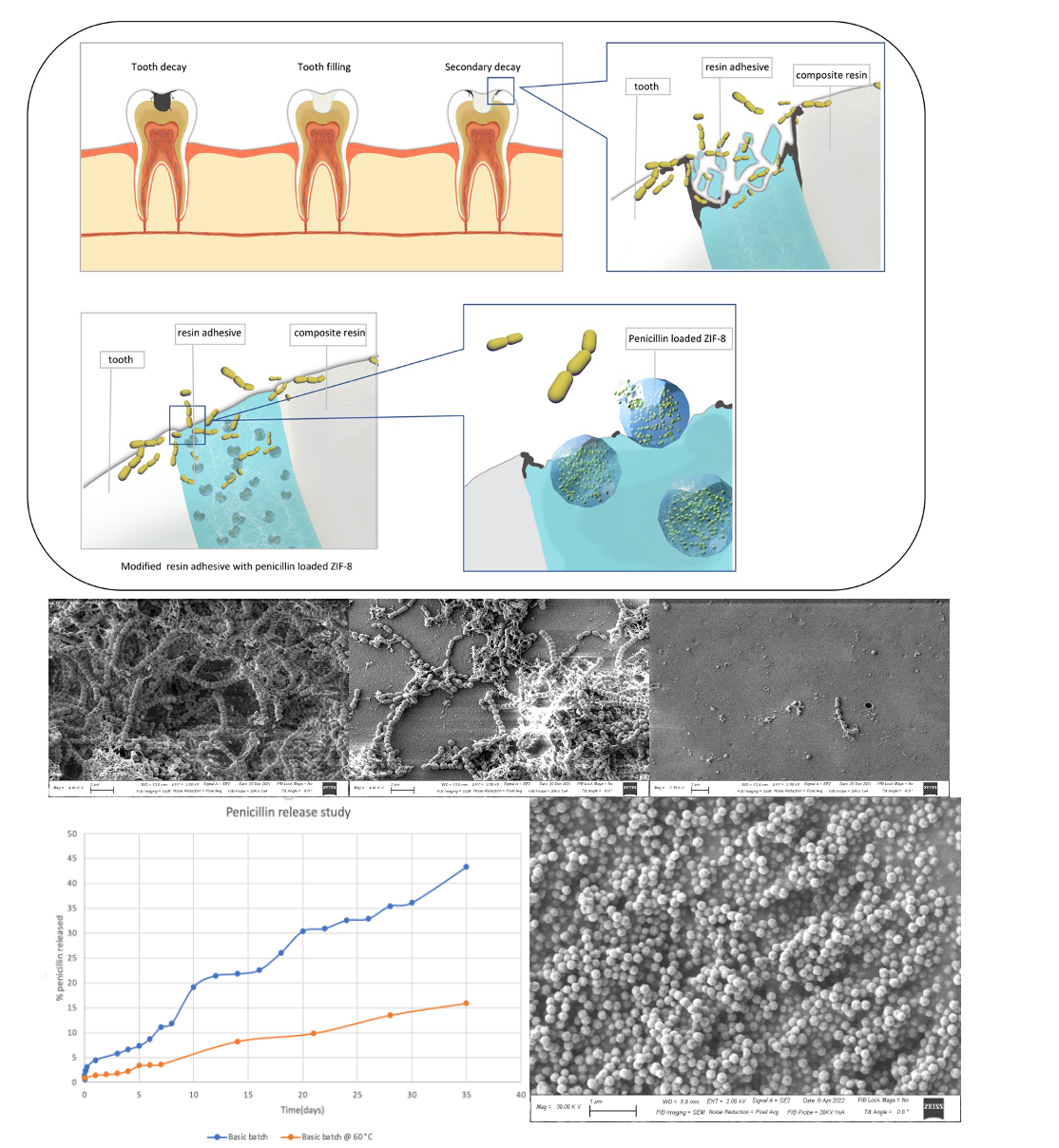(150aa) Antibiotic Loaded ZIF-8 for Enhancing Dental Resin Antibacterial Activity
AIChE Annual Meeting
2023
2023 AIChE Annual Meeting
Materials Engineering and Sciences Division
Poster Session: Materials Engineering & Sciences (08B - Biomaterials)
Tuesday, November 7, 2023 - 3:30pm to 5:00pm
ZIF-8, a highly porous zinc-based metal-organic framework (MOF), has garnered interest due to its notable antibacterial properties against both gram-positive and gram-negative oral bacteria. The presence of Zn2+ ions in ZIF-8 has been utilized in numerous dental hygiene products. Additionally, ZIF-8's potential as an effective drug loading and delivery platform has been explored. Despite these promising attributes, there is a scarcity of research focusing on the application of ZIF-8 in dental filling materials. In our study, penicillin was encapsulated within ZIF-8, which served as a carrier to incorporate the antibiotic into the dental resin adhesive. Upon exposure to the oral environment through an initial disruption at the interface, both penicillin and Zn2+ should be gradually released, inhibiting biofilm growth on the tooth surface. The synergistic effect of ZIF-8 and penicillin is anticipated to enhance their efficacy against bacterial resistance.
We employed a post-synthesis adsorption method, in which is we allow pre-synthesized ZIF-8 to adsorb penicillin within its pores, and an in situ synthesis and loading method in which we directly synthesized ZIF-8 in an aqueous penicillin solution to capture and encapsulate penicillin within the ZIF-8 pores. The sample we obtained from the in situ synthesis method has a penicillin loading of approximately 259 mg/g and a release time of more than 100 days. In contrast, a typical sample using the post-synthesis method had a penicillin loading of less than 50 mg/g and a release time of less than 6 days. Nonetheless, this sample still showed a significant antibacterial effect in antibacterial testing. Our results suggest that no biofilm formed on the dental resin adhesive mixed with the penicillin-loaded ZIF-8 sample under conditions that lead to biofilm formation on the penicillin-free resin. Ongoing efforts will test antibacterial performance of the in situ synthesized sample, which has higher penicillin loading and longer release time. Dependence of penicillin release rate on pH and temperature will also be studied.
